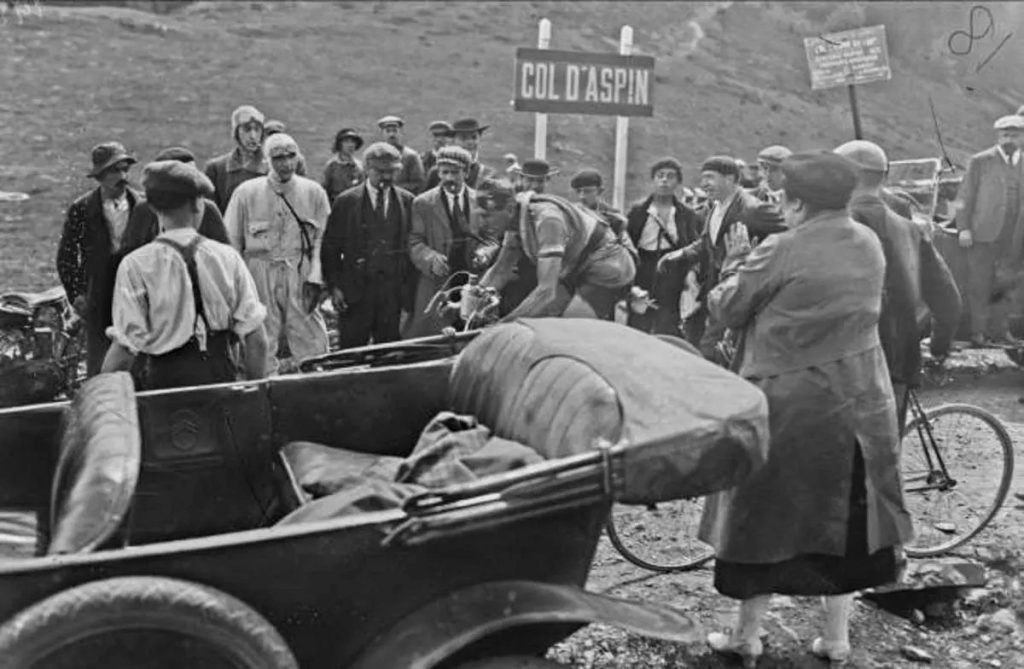Jean Alavoine (1888–1943) had an exceptional Tour de France in 1922, showcasing his talent and resilience. He claimed victory in three stages, including two in the grueling Pyrenees. His remarkable performance earned him the yellow jersey, which he held for five days. Stage 6 featured iconic climbs such as the Col d’Aspin, Col d’Aubisque, and Col de Peyresourde. The Tourmalet, typically part of the route, was excluded due to adverse weather conditions.
Heading into Stage 6, Eugène Christophe led the general classification. At 37 years and 164 days, Christophe still holds the record as the oldest rider to lead the Tour de France. True to his reputation as the unluckiest cyclist in history, Christophe encountered more misfortune. Although he managed to retain the overall lead after Stage 6, he lost over half an hour to stage winner Alavoine. Disaster struck in Stage 7 when Christophe’s fork broke—a recurring theme in his career—and he lost significant time.

Philippe Thys, the three-time Tour de France champion (1913, 1914, 1920), also faced technical difficulties in the Pyrenees, losing valuable time. By the end of Stage 7, Alavoine had taken over the yellow jersey. However, his fortunes turned in Stage 11 when his chain broke multiple times. After Stage 12, Hector Heusghem became the new leader. Yet, Heusghem was penalized an hour for an illegal bike change following a crash, and the yellow jersey passed to Firmin Lambot.
Lambot ultimately won the Tour de France in 1922, marking his second overall victory after his first triumph in 1919. Jean Alavoine finished as the runner-up, achieving his best-ever result in the race.
Alavoine’s legacy includes an impressive 17 Tour de France stage wins, securing him a prominent place in cycling history.